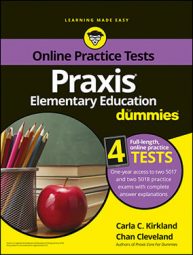An anthropologist can focus on modern culture or prehistoric culture, as well as all the cultures in between. There are a lot of different types of anthropologists, including the following:
- Archaeologists. Archaeologists re-create the lives and cultures of people who died a long time ago. They do this by excavating entire cities, burial grounds, and other areas like wells and even garbage dumps.
- Biological or physical anthropologists. Physical or biological anthropologists examine both living and fossilized primates and humans. Yep, these anthropologists dedicate their time and expertise to studying things like rock-hard skulls.
- Primatologists. Primatologists study primates like gorillas and chimpanzees to see how their group behavior matches or differs from human behavior. Gorillas and chimps are mankind's closest relative species; primatologists work to discover just how close.
- Linguistic anthropologists. Linguistic anthropologists study language and how it's used socially. These specialists learn about people by looking at their writings and words.
- Ethnographers. Ethnographers study ethnic groups in the field. They have a firsthand look at how different cultures work by living among the people or primates. This line of work can be fun and even dangerous.
Practice question
- The emergence and widespread use of the code of Hammurabi from ancient Mesopotamia is most directly connected to which of the following? A. Laws concerning economic necessity which brought about the use of a government-controlled banking system B. A rise in government-sanctioned religious ceremonies C. A focus on the physical and biological needs of all community members, not just the ruling class D. The emergence of laws concerning the rights of individuals in matters of personal economics, punishments of crimes, and contractual provisions
Answer and explanation
- The correct answer is Choice (D). The question requires an understanding of the role of the fundamental laws in government and legal rights of citizens in this culture, as well as an understanding that this is one of the oldest primitive constitutions to be found by archeologists. The answer is not Choice (A) because the code was not related solely to economics and did not precipitate a government-controlled banking system. The answer is not Choice (B) because the code was not based on religious ceremonies; it was more political in nature. The answer is not Choice (C) because it was not related to the basic human needs of the society; rather, it was focused on individual rights.

